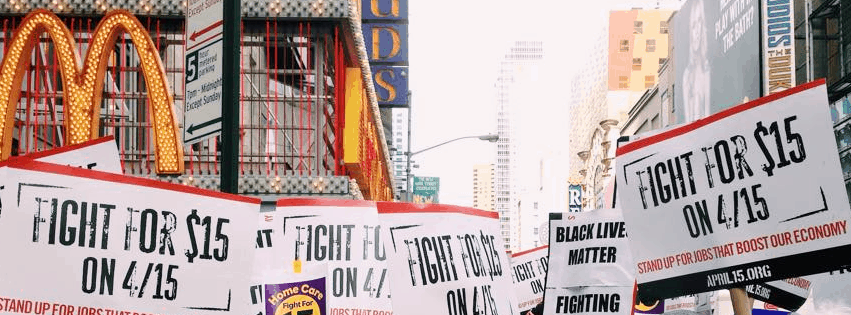
Sunah Chang is a student at Harvard Law School.
In today’s news and commentary: the EEOC finalizes its guidance on workplace harassment, unionized hotel workers prepare for May Day rallies, and the Fight for $15 campaign rebrands as Fight for a Union.
Yesterday, the EEOC issued its finalized guidance on preventing harassment in the workplace. This guidance marks the first time since 1999 that the EEOC has updated its anti-harassment guidelines for employers. Notably, in light of the Supreme Court’s 2020 decision in Bostock, the new guidance encompasses protections for LGBTQ+ workers, including protecting the rights of employees to access a bathroom consistent with their gender identity and protecting employees from repeated and intentional misgendering. The guidance also states that workplace harassment based on an employee’s reproductive health-related decisions is prohibited under Title VII. Furthermore, the guidance addresses the growth of virtual work environments and clarifies how harassment can manifest in remote workplaces.
The final guidance was approved by EEOC commissioners by a 3-2 vote along party lines. Conservatives, including Republican EEOC Commissioner Andrea Lucas, have spoken out against the guidance as impinging on the freedom of speech and religion of employees and employers. Accordingly, the guidance is expected to face legal challenges, particularly based on religious discrimination claims.
In other news, 40,000 unionized hotel workers across the United States and Canada will hold rallies on May Day as talks for a new contract begin with Marriott, Hilton, and Hyatt. As the hotel industry enjoys a new boom in travel and tourism, hotel workers, who are still working under pandemic-era contracts, are demanding pay raises. Hotel workers will participate in rallies and marches in Boston, Baltimore, New Haven, Toronto, Honolulu, and other cities.
In more union news, the Fight for $15 campaign, a coalitional movement that began in 2012 to demand better pay for low-wage workers, has rebranded itself as “Fight for a Union.” Originally launched as “Fight for $15 and a Union,” the campaign pivoted to focus on its demand for a $15 minimum wage and gained successes in raising minimum wage laws across numerous states and cities. In light of these successes (and perhaps in light of the emerging discourse surrounding the inadequacy of a $15 minimum wage), the movement’s organizers have rebranded the campaign to “Fight for a Union” in order to focus on its “demand for every worker to have a union.” In its rebranding announcement video, the campaign stated: “From the beginning, we were speaking out, organizing, and striking for a union. As workers, we fight for a thriving wage, not just a living wage.”






Daily News & Commentary
Start your day with our roundup of the latest labor developments. See all
February 17
San Francisco teachers’ strike ends; EEOC releases new guidance on telework; NFL must litigate discrimination and retaliation claims.
February 16
BLS releases jobs data; ILO hosts conference on child labor.
February 15
The Office of Personnel Management directs federal agencies to terminate their collective bargaining agreements, and Indian farmworkers engage in a one-day strike to protest a trade deal with the United States.
February 13
Sex workers in Nevada fight to become the nation’s first to unionize; industry groups push NLRB to establish a more business-friendly test for independent contractor status; and UFCW launches an anti-AI price setting in grocery store campaign.
February 12
Teamsters sue UPS over buyout program; flight attendants and pilots call for leadership change at American Airlines; and Argentina considers major labor reforms despite forceful opposition.
February 11
Hollywood begins negotiations for a new labor agreement with writers and actors; the EEOC launches an investigation into Nike’s DEI programs and potential discrimination against white workers; and Mayor Mamdani circulates a memo regarding the city’s Economic Development Corporation.